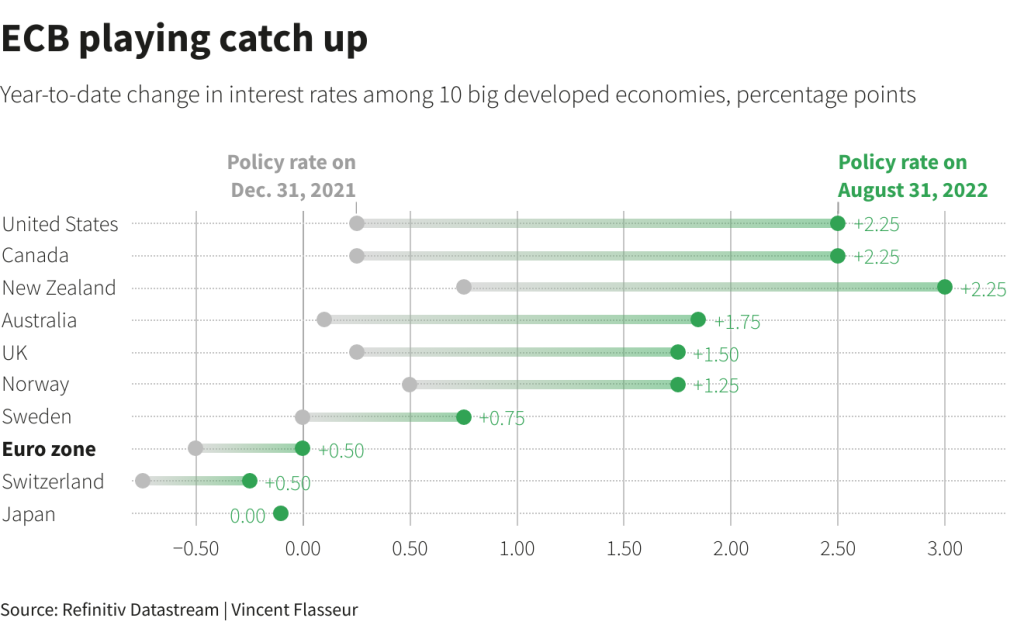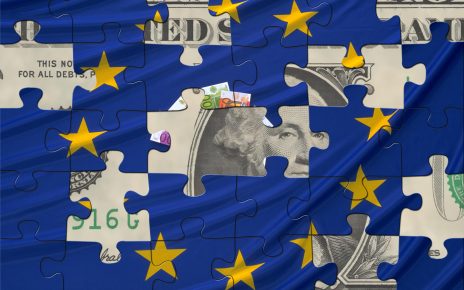- Investors expect a 75bps rate hike from the ECB after inflation hit 9.1%.
- The ECB may take an aggressive stance as gas prices spike.
- Inflation in the eurozone might continue rising.
The Euro (6E) futures continues to be under selling pressure as the US dollar remained the top gainer following upbeat US NFP data released on Friday.
Policymakers at the European Central Bank will decide whether to make a significant 50 basis point rate hike or an even larger one to rein in historically high inflation on Thursday.
Since last week’s 9.1% record-high inflation statistic, investors have priced in a higher likelihood of a supersized 75 basis point rise, and the ECB is under pressure to act quickly before the economy deteriorates and its leeway to tighten decreases.
“It still feels like the ECB is playing catch up, and that makes it more likely that they will hike by 75 (bps) and remain hawkish,” said Mike Riddell, senior fixed income portfolio manager at Allianz Global Investors.
The case for a more aggressive move may be strengthened by a further spike in gas prices and a decline in the euro futures prices on Monday due to Russia’s most recent gas pipeline to Europe being shut down.
A more extensive action would demonstrate a commitment to reducing inflation, which is now running well above the ECB’s 2% objective and supporting the bank’s credibility. Other major central banks have increased rates rapidly, and the ECB chose to make a larger-than-expected move in July.
On Thursday, a 50 bps change is anticipated, but the markets have increased their bets on a more significant 75 bps increase, and several banks, including Goldman Sachs, are forecasting one.

The image above shows interest rates in 10 developed economies. It is clear that ECB is behind the curve and might need a more aggressive policy to catch up with countries like the US.
The most recent economic projections released by the ECB on Thursday indicate that inflation will continue to rise.
A key gas supply route from Russia to Europe was shut down only days before the summit on Thursday, fueling concerns that the high gas price will keep inflation high.
The justification for more aggressive rate increases is strengthened by a depreciating currency, which raises the cost of imports. On Monday, the euro (6E) futures went below 99 cents for the first time in over two decades and is down about 13% this year. This collapse might not end until the gas crisis in Europe goes away.





